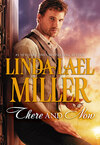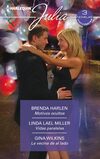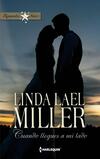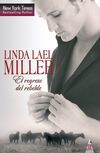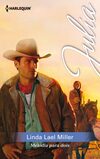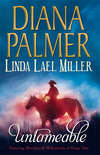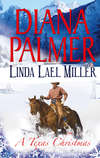Kitabı oku: «There and Now», sayfa 4
Chapter Four
After leaving the Pine River graveyard, Elisabeth stopped by the post office to mail the letter she’d written to Rue the night before. Even though she loved and trusted her cousin, it was hard to drop the envelope through the scrolled brass slot, and the instant she had, she wanted to retrieve it.
All she’d need to do was ask the sullen-looking man behind the grilled window to fetch the letter for her, and no one would ever know she was having delusions.
Squaring her shoulders, Elisabeth made herself walk out of the post office with nothing more than a polite, “Good morning,” to the clerk.
The library was open, but Elisabeth soon learned that there were virtually no records of the town’s history. There was, however, a thin, self-published autobiography called, My Life in Old Pine River, written by a Mrs. Carolina Meavers.
While the librarian, a disinterested young lady with spiky blond hair and a mouthful of gum, issued a borrower’s card and entered Elisabeth’s name in the computer system, Elisabeth skimmed the book. Mrs. Meavers herself was surely dead, but it was possible she had family in the area.
“Do you know anyone named Meavers?” she asked, holding up the book.
The child librarian popped her gum and shrugged. “I don’t pay a lot of attention to old people.”
Elisabeth suppressed a sigh of exasperation, took the book and her plastic library card and left the small, musty building. She and Rue had visited the place often during their summer visits to Pine River, devouring books they secretly thought they should have been too sophisticated to like. Elisabeth had loved Cherry Ames, student nurse, and Rue had consumed every volume of the Tarzan series.
Feeling lonely again, Elisabeth crossed the wide street to the newspaper office, where the weekly Pine River Bugle was published.
This time she was greeted by a competent-looking middle-aged man with a bald spot, wire-rimmed glasses and a friendly smile. “How can I help you?” he asked.
Elisabeth returned his smile. “I’m doing research,” she said, having rehearsed her story as she crossed the street. “How long has the Bugle been in publication?”
“One of the oldest newspapers in the state,” the man replied proudly. “Goes back to 1876.”
Elisabeth’s eyes widened. “Do you have the old issues on microfilm?”
“Most of them. If you’ll just step this way, Ms….?”
“McCartney,” she answered. “Elisabeth McCartney.”
“I’m Ben Robbins. Are you writing a book, Ms. McCartney?”
Elisabeth smiled, shook her head and followed him through a small but very noisy press room and down a steep set of stairs into a dimly lit cellar.
“They don’t call these places morgues for nothing,” Mr. Robbins said with a sigh. Then he gestured toward rows of file cases. “Help yourself,” he said. “The microfilm machine is over there, behind those cabinets.”
Elisabeth nodded, feeling a little overwhelmed, and found the long table where the machine waited. After putting down her purse and the library book, she went to work.
The four issues of the Bugle published in June of 1892 were on one spool of film, and once Elisabeth found that and figured out how to work the elaborate projection apparatus, the job didn’t seem so difficult.
During the first week of that long-ago year, Elisabeth read, Anna Jean Maples, daughter of Albert and Hester Eustice Maples, had been married to Frank Peterson on the lawn of the First Presbyterian church. Kelsey’s Grocery had offered specials on canned salmon and “baseball goods.”
The Bugle was not void of national news. It was rumored that Grover Cleveland would wrest the presidency back from Benjamin Harrison come November, and the people of Chicago were busy preparing for the World Columbian Exposition, to open in October.
Elisabeth skimmed the second week, then the third. A painful sense of expectation was building in the pit of her stomach when she finally came upon the headline she’d been searching for.
DR. FORTNER AND DAUGHTER PERISH IN HOUSE FIRE
She closed her eyes for a moment, feeling sick. Then she anxiously read the brief account of the incident.
No exact date was given—the article merely said, “This week, the people of Pine River suffered a tragic double loss.” The reporter went on to state that no bodies or remains of any kind had been found, “so hot did the hellish blazes burn.”
Practically holding her breath, Elisabeth read on, feeling just a flicker of hope. She’d watched enough reruns of Quincy to know just how stubbornly indestructible human bones could be. If Jonathan’s and Trista’s remains had not been found, they probably hadn’t died in the fire.
She paused to sigh and rub her eyes. If that was true, where had they gone? And why were there two graves with head-stones that bore their names?
Elisabeth went back to the article, hoping to find a specific date. Near the end she read, “Surviving the inferno is a young and apparently indigent relative of the Fortners, known only as Lizzie. Marshal Farley Haynes has detained her for questioning.”
After scanning the rest of that issue and finding nothing but quilting-bee notices and offers to sell bulls, buggies and nursery furniture, Elisabeth went on to late July of that fateful year.
MYSTERIOUS LIZZIE TO BE TRIED FOR MURDER OF PINE RIVER FAMILY
Pity twisted Elisabeth’s insides. Her head was pounding, and she was badly in need of some fresh air. After finding several coins in the bottom of her purse, she made copies of the last newspaper of June 1892, to read later. Then she carefully put the microfilm reel back in its cabinet and turned off the machine.
Upstairs, she found Ben Robbins in a cubicle of an office, going over a stack of computer printouts.
“I want to thank you for being so helpful,” Elisabeth said. Her mind was filled with dizzying thoughts. Had Trista and Jonathan died in that blasted fire or hadn’t they? And who the heck was this Lizzie person?
Ben smiled and took off his glasses. “Find what you were looking for?”
“Yes and no,” Elisabeth answered distractedly, frowning as she shuffled the stack of microfilm copies and the library book resting in the curve of her arm. “Did you know this woman—Carolina Meavers?”
“Died when I was a boy,” Ben said with a shake of his head. “But she was good friends with the Buzbee sisters. If you have any questions about Carolina, they’d be the ones to ask.”
The Buzbee sisters. Of course. She guessed this was a case of overlooking the obvious. Elisabeth thanked him again and went out.
Belying the glowering sky of the night before, the weather was sunny and scented with spring. Elisabeth got into her car and drove home.
By the time she arrived, it was well past noon and she was hungry. She made a chicken-salad sandwich, took a diet cola from the refrigerator, found an old blanket and set out through the orchard behind the house in search of a picnic spot.
She chose the grassy banks of Birch Creek, within sight of the old covered bridge that was now strictly off limits to any traffic. Elisabeth and Rue had come to this place often with Aunt Verity to wade in the sparkling, icy stream and listen to those endless and singularly remarkable stories.
Elisabeth spread the blanket out on the ground and sat down to eat her sandwich and drink her soda. When she’d finished her lunch, she stretched out on her stomach to read about Lizzie’s arrest. Unfortunately, the piece had been written by the same verbose and flowery reporter who had covered the fire, and beyond the obvious facts, there was no real information.
Glumly, Elisabeth set aside the photographs and flipped through the library book. There were pictures in the center, and she stopped to look at them. The author, with her family, posing on the porch—if those few rough planks of pine could be described as a porch—of a ramshackle shanty with a tarpaper roof. The author, standing on the steps of a country schoolhouse that had been gone long before Elisabeth’s birth, clutching her slate and spelling primer to her flat little chest.
Elisabeth turned another page and her heart leapt up into her sinus passages to pound behind her cheeks. Practically the entire town must have been in that picture, and Elisabeth could see one side of the covered bridge. But it wasn’t that structure that caught her eye and caused her insides to go crazy with a strange, sweet anxiety.
It was Jonathan’s image, smiling back at her from the photograph. He was wearing trousers and a vest, and his dark hair was attractively rumpled. Trista stood beside him, a basket brimming with wildflowers in one hand, regarding the camera solemnly.
Elisabeth closed her eyes. She had to get a hold on her emotions. These people had been dead for a century. And whatever fantasies she might have woven around them, they could not be a part of her life.
She gathered the book and the photocopies and the debris of her lunch, then folded the blanket. Despite the self-lecture, Elisabeth knew she would cross that threshold into the past again if she could. She wanted to see Jonathan and warn him about the third week in June.
In fact, she just plain wanted to see Jonathan.
Back at the house, Elisabeth found she couldn’t settle down to the needlework or reading she usually found so therapeutic. There were no messages on the answering machine.
Restless, she took the Buzbees’ covered casserole dish, now empty and scrubbed clean, and set out for the house across the road.
An orchard blocked the graceful old brick place from plain view, and the driveway was strewed with fragrant velvety petals. Elisabeth smiled to herself, holding the casserole dish firmly, and wondered how she had ever been able to leave Pine River for the noise and concrete of Seattle.
Miss Cecily came out onto the porch and waved, looking pleased to have a visitor. “I told Sister you’d be dropping in by and by, but she said you’d rather spend your time with young folks.”
Elisabeth chuckled. “I hope I’m not interrupting anything,” she said. “I really should have called first.”
“Nonsense.” Cecily came down the walk to link Elisabeth’s arm with hers. “Nobody calls in the country. They just stop by. Did you enjoy the casserole, dear?”
Elisabeth didn’t have the heart to say she’d put most of it down the disposal because there had been so much more than she could eat. “Yes,” she said. “Every bite was delicious.”
They proceeded up fieldstone steps to the porch, where an old-fashioned swing swayed in the mid-afternoon breeze. The ponderous grandfather clock in the entryway sounded the Westminster chimes, three o’clock, and Elisabeth was surprised that it was so late.
“Sister!” Cecily called, leading Elisabeth past the staircase and down a hallway. There was a note of triumph in her voice, an unspoken “I told you she would come to visit!” “Oh, Sister! We have company!”
Roberta appeared, looking just a little put out. Obviously, she preferred being right to being visited. “Well,” she huffed, in the tone of one conceding grudging defeat, “I’ll get the lemonade and the molasses cookies.”
Soon the three women were settled at the white iron ice-cream table on the stone-floored sun porch, glasses of the Buzbee sisters’ incomparable fresh-squeezed lemonade brimming before them.
“Elisabeth thought the casserole was delicious,” Cecily announced with a touch of smugness, and Elisabeth resisted a smile, wondering what rivalries existed between these aging sisters.
“Wait until she tastes my vegetable lasagne,” said Roberta, pursing her lips slightly as she reached for the sampler she was embroidering.
“I’d like to,” Elisabeth said, to be polite. She took a molasses cookie, hoping that would balance things out somehow. “Mr. Robbins at the newspaper told me you probably knew Mrs. Carolina Meavers.”
“My, yes,” said Roberta. “She was our Sunday-school teacher.”
“The old crow,” muttered Cecily.
Elisabeth nibbled at her cookie. “She wrote a book about Pine River, you know. I checked it out of the library this morning.”
Roberta narrowed her eyes at Elisabeth. “It’s that crazy house. That’s what’s got you so interested in Pine River history, isn’t it?”
“Yes,” Elisabeth answered, feeling as though she’d been accused of something.
“There are some things in this world, young woman, that are better left alone. And the mysteries of that old house are among them.”
“Don’t be so fractious, Sister,” Cecily scolded. “It’s natural to be curious.”
“It’s also dangerous,” replied Roberta.
Elisabeth could see that this visit was going to get her nowhere in unraveling a century of knotted truths, so she finished her cookie and her lemonade and made chitchat until she could politely leave. As Cecily was escorting her through the parlor, Elisabeth was jolted out of her reveries by a brown and hairy shrunken head proudly displayed on the back of the upright piano.
“Chief Zwilu of the Ubangis,” Cecily confided, having followed Elisabeth’s horrified gaze. “Since the dastardly deed had already been done, Sister and I could see no reason not to bring the poor fellow home as a souvenir.”
Elisabeth shivered. “The customs people must have been thrilled.”
Cecily shook her head and answered in a serious tone, “Oh, no, dear. They were quite upset. But Sister was uncommonly persuasive and they allowed us to bring the chief into the country.”
Just before the two women parted at the Buzbee gate, Cecily patted Elisabeth’s arm and muttered, “Don’t mind Sister, now. She was just put out because she’s always considered my beef casserole inferior to her vegetable lasagna.”
“I won’t give it another thought,” Elisabeth promised. She didn’t smile until she was facing away from Cecily, walking down the long driveway.
Reaching the downstairs hallway of her own house, Elisabeth found the light blinking on the answering machine and eagerly pushed the play button.
“Hello, Elisabeth.” The voice belonged to Traci, her father’s wife. “Marcus asked me to call and find out if you need any money and if there’s anything we can do to convince you to come and spend the summer in Tahoe with us. If I don’t hear from you, I’ll assume you’re all right. Bye-ee.”
“Bye-ee,” Elisabeth chimed sweetly, just as another message began to play.
“Elisabeth? It’s Janet. Just wanted to say I had a great time visiting. How about coming to Seattle next weekend? Give me a call.”
Elisabeth turned off the machine and went slowly up the stairs. On a whim, she continued up a second flight to the attic.
There was one way to find out if she’d walked in her sleep that night and found a man’s coat to use as proof of the unprovable.
The attic door squeaked loudly on its hinges, and Elisabeth thought to herself that the shrill sound should have awakened the dead, let alone a sleepwalker. A flip of the switch located just inside the door illuminated the dust-covered trunks, bureaus, boxes and chairs.
Even from where she stood, Elisabeth could see that neither she nor anyone else had visited this chamber in a very long time. There were no tracks in the thick dust on the floor.
Taking the necklace out from under her sweater, Elisabeth returned to the second floor and stood opposite the sealed door. Her heart was beating painfully fast, and the pit of her stomach was jittery. “Be there,” she whispered. “Please, Jonathan. Be there.”
Elisabeth tried the knob, but even before she touched it, she knew it wasn’t going to turn. Obviously, she could not enter the world on the other side of that door at will, even wearing the necklace. Other forces, all well beyond Elisabeth’s comprehension, had to be present.
“I have to tell you about the fire,” she said sadly, sliding down the wooden framework to sit on the hallway floor, her knees drawn up, her forehead resting on her folded arms. “Please, Jonathan. Let me in.”
She must have dozed off right there on the floor. She came to herself with a start when she heard her name being whispered.
“Elisabeth! Elisabeth, come back! I need to talk to you!”
Elisabeth glanced wildly toward the fanlight at the end of the hall and saw that it was still light outside. Then she scrambled to her feet.
“Trista?” She reached for the doorknob, and it turned easily in her hand. On the other side of the door, she found the child who was a lifetime her senior.
Trista was sitting on the floor of her room, next to the big dollhouse, and her lower lip protruded. “I’m being punished,” she said.
Elisabeth knelt beside the little girl and gave her a heartfelt hug, hoping she wouldn’t feel the trembling. “What did you do?”
“Nothing.” Jonathan’s daughter handed Elisabeth a tiny china doll as she sat beside her on the rag rug, and Elisabeth smiled at its little taffeta dress and painted hair.
“Come on, Trista,” she said. “Your father wouldn’t restrict you to your room for no reason.”
“Well, it wasn’t a very good reason.”
Elisabeth raised her eyebrows, waiting, and Trista’s little shoulders rose and fell in a heavy sigh.
“I couldn’t help it,” she said. “I told my friend Vera about you, and she told everybody in the county that Papa had a naked woman here. Now I have to come straight to my room after school every day for a solid month!”
Elisabeth touched the child’s glossy dark pigtail. “I’m sorry, sweetheart. I didn’t mean to get you in trouble. I do, however, feel duty bound to point out that I wasn’t naked—I was wearing a football jersey.”
“You didn’t get me into trouble,” Trista said. “Vera did. And what’s a football jersey?”
“A very fancy undershirt. Is your papa at home, Trista?” Elisabeth couldn’t help the little shiver of excitement that passed through her at the prospect of encountering Jonathan again, though God knew he probably wouldn’t be thrilled to see her.
Glumly, Trista nodded. “He’s out in the barn, I think. Maybe you could tell him that a month is too long to restrict a girl to her bedroom.”
Elisabeth chuckled and kissed the child’s forehead. “Sorry, short person. It isn’t my place to tell your father how to raise his daughter.”
With care, Elisabeth unclasped the necklace and put it in a little glass bowl on Trista’s bureau. “You’ll keep this safe for me, won’t you?”
Trista nodded, watching Elisabeth with curious eyes. “I’ve never seen a lady wear pants before,” she said. “And I’ll bet you haven’t got a corset on, neither.”
Elisabeth grinned over one shoulder as she opened the door. “That’s one bet you’re bound to win,” she said. And then she was moving down the hallway.
The pictures of glowering men in beards and steely eyed, calico-clad women were back, and so was the ghastly rose-patterned runner on the floor. Elisabeth felt exhilarated as she hurried toward the back stairway, also different from the one she knew, and walked through the kitchen.
There was a washtub hanging on the wall outside the back door, and chickens clucked and scratched in the yard. A woman was standing nearby, hanging little calico pinafores and collarless white shirts on a clothesline. She didn’t seem to notice Elisabeth.
Wife? Housekeeper? Elisabeth decided on the latter. When Jonathan had snatched the necklace from Elisabeth’s neck during her first visit, he’d spoken of his spouse in the past tense.
When she stepped through the wide doorway of the sturdy, unpainted barn—which was a teetering ruin in her time—she saw golden hay wafting down from a loft. A masculine voice was singing a bawdy song that made Elisabeth smile.
“Jonathan?” she called, waiting for her eyes to adjust to the dimmer light. The singing instantly stopped.
Jonathan looked down at her from the hayloft, his chest shirtless and glistening with sweat, a pitchfork in one hand. His dark hair was filled with bits of straw. Something tightened inside Elisabeth at the sight of him.
“You.” His tone was so ominous, Elisabeth took a step backward, ready to flee if she had to. “Stay right there!” he barked the moment she moved, shaking an index finger at her.
He tossed the pitchfork expertly into the hay and climbed down rough-hewn rungs affixed to the wall beside the loft. Standing within six feet of Elisabeth, he dragged his stormy-sky eyes over her in angry wonderment, then dragged a handkerchief from his hip pocket and dried his brow.
Elisabeth found the sight and scent of him inexplicably erotic, even though if she could have described her primary emotion, she would have said it was pure terror.
“Trousers?” he marveled, stuffing the handkerchief back into his pocket. “Who are you, and where the devil did you disappear to the other night?”
Elisabeth entwined her fingers behind her back, hiding the crazy, nonsensical joy she felt at seeing him again. “Where I come from, lots of women wear—trousers,” she said, stalling.
He went to a bucket on a bench beside the wall and raised a dipperful of water to his mouth. Elisabeth watched the muscles of his back work, sweaty and hard, as he swallowed and returned the dipper to its place.
“You don’t look Chinese,” he finally said, dryly and at length.
“Listen, if I tried to tell you where I really came from, you’d never believe me. But I—I know the future.”
He chuckled and shook his head, and Elisabeth was reminded of his medical degree. The typical man of science. Jonathan probably believed only in things he could reduce to logical components. “No one knows the future,” he replied.
“I do,” Elisabeth insisted, “because I’ve been there. And I’m here to warn you.” She swallowed hard as he regarded her with those lethally intelligent eyes. Somehow she couldn’t get the words out; they’d sound too insane.
“About what?”
Elisabeth closed her eyes and forced herself to answer. “A fire. There’s going to be a terrible fire, the third week of June. Part of the house will be destroyed, and you and Trista will —will disappear.”
Jonathan’s hand shot out and closed around her elbow, tight as a steel manacle. “Who are you, and what asylum did you escape from?” he snapped.
“I told you before—my name is Elisabeth McCartney. And I’m not insane!” She paused, biting her lip and futilely trying to pull out of his grasp. “At least, I don’t think I am.”
He dragged her into the dusty, fading sunlight that filled the barn’s doorway and examined her as though she were a creature from another planet. “Your hair,” he muttered. “No woman I’ve ever seen wears her hair sheared off at the chin like that. And your clothes.”
Elisabeth sighed. “Jonathan, I’m from the future,” she said bluntly. “Women dress like this in the 1990s.”
He touched her forehead, just as he had once before. “No fever,” he murmured, as though she hadn’t spoken at all. “This is the damnedest thing I’ve ever seen.”
“I guess they didn’t cover this in medical school, huh?” Elisabeth said, getting testy because he seemed to see her as more of a white mouse in a laboratory than a flesh-and-blood woman. “Well, here’s another flash for you, Doc—they’re not bleeding people with leeches anymore, but there’s still no cure for psoriasis.”
Jonathan’s grip on her arm didn’t slacken. “Who are you?” he repeated, and it was clear to Elisabeth that her host was running out of patience. If he’d ever possessed any in the first place.
“Margaret Thatcher,” she snapped. “Damn it, Fortner, will you let go of my arm! You’re about to squeeze it off at the elbow!”
He released her. “You said your name was Elisabeth,” he said in all seriousness.
“Then why did you have to ask who I am? It isn’t as though I haven’t told you more than once!”
He crossed the barn, snatched a shirt from a peg on the wall and slipped his arms into it. “How did you manage to vanish from my house last week, Miss McCartney?”
Elisabeth waited for him in the doorway, knowing she’d never be able to outrun him. “I told you. There’s a passageway between your time and mine. You and I are roommates, in a manner of speaking.”
Jonathan placed a hand on the small of Elisabeth’s back and propelled her toward the house. There was no sign of the woman who had been hanging clothes on the line. The set of his jaw told Elisabeth he was annoyed with her answers to his questions.
Which wasn’t surprising, considering.
He steered her up the back steps and through the door into the kitchen. “They must have cut your hair off while you were in the asylum,” he said.
“I’ve never been in an asylum,” Elisabeth informed him. “Except in college, once. We visited a mental hospital as part of a psychology program.”
Jonathan’s teeth were startlingly white against his dirty face. “Sit down,” he said.
Elisabeth obeyed, watching as he took a kettle from the stove and poured hot water into a basin. He added cold from the pump over the sink and then began to wash himself with pungent yellow soap. She found she couldn’t look away, even though there was something painfully intimate in the watching.
By the time he turned to her, drying himself with a damask towel, Elisabeth’s entire body felt warm and achy, and she didn’t trust herself to speak. The man was so uncompromisingly masculine, and his very presence made closed places open up inside her.
Jonathan took his medical bag from a shelf beside the door, set it on the table with a decisive thump and opened the catch. “The first order of business, Miss McCartney,” he said, taking out a stethoscope and a tongue depressor, “is to examine you. Open your mouth and say awww.”
“Oh, brother,” Elisabeth said, but she opened her mouth.
Ücretsiz ön izlemeyi tamamladınız.
